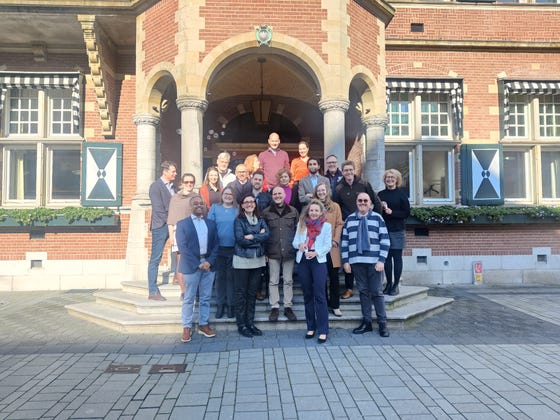European study to integrate palliative care in heart failure

Led by UMC Utrecht, a study on improving palliative care in heart failure has begun. The aim of the study is to integrate a palliative care approach into standard care for patients with heart failure and their loved ones in Europe. By responding faster and better to all the care needs of each individual patient, patients' quality of life will improve. Nine European countries are participating in the study, and the study will run for five years.
In Europe, more than 4.5 million patients and loved ones live with chronic heart failure. In patients with chronic heart failure, the heart can no longer pump blood properly. Patients experience many different needs and symptoms, ranging from shortness of breath and fatigue to somberness. Palliative care for heart failure is less well developed than for other conditions: only five to seven percent of patients with heart failure are referred to palliative care, and often too late. Early palliative care provides supportive care so that patients and their loved ones can better control all symptoms. As a result, they are expected to live at home longer and have a better quality of life.
Integrating palliative care into standard care
The RAPHAEL study is an international, multicenter study with a patient advisory panel at its core. The goal of the study is to integrate a palliative care approach into standard care for patients with heart failure. Geert-Jan Geersing, researcher, general practitioner and project leader, explains, "The study aims to improve early identification of patients with potential palliative care needs. We are introducing a unique personalized home- and community-based, multidimensional approach for patients with heart failure and their loved ones in Europe."
Current care and needs
The palliative care approach is based on the principles of palliative reasoning. "This means that appropriate care is provided by early identification of physical and psychological symptoms and social and existential concerns of patients with heart failure and their loved ones," says Everlien de Graaf, researcher and project leader. "In consultation with the patient and their loved ones, key care needs are described in a proactive care plan. Meanwhile, patients' symptoms and concerns are monitored using the Utrecht Symptom Diary-4 dimensional (USD-4D), with this the care is evaluated and adjusted if necessary."
"The first part of our research is about identifying the needs of patients at home and their loved ones to optimize USD-4D. In addition, current care will be mapped, such as collaboration between caregivers, physicians and nurses. Based on these outcomes, the palliative care approach and embedding in the care of people with heart failure will be optimized on a country-by-country basis. This will be followed by a feasibility study and the final two-year trial to test the effect and cost-effectiveness. Throughout this process, we pay attention to developing optimal implementation in Europe. Researchers who specialize in ethics are involved in the project to make sure that everyone keeps inclusivity and equality in mind. This applies to patients and loved ones, as well as healthcare providers and researchers."
Monitoring symptoms at home
Central to this palliative care approach is the monitoring of symptoms and concerns. To do this optimally in the home setting, the researchers will also develop an app called PAL@Heart. This app will allow patients to monitor and discuss their symptoms and needs at home. The caregiver will receive a notification when symptoms or needs deteriorate or change over time. In this way, these symptoms can be identified and addressed early. By addressing each individual patient's care needs faster and better, the patient's quality of life and autonomy improves. In addition, this leads to a reduction in emergency room admissions, thus relieving the burden on the health care system and reducing costs.
European study
Nine European countries are participating in the five-year study: the Netherlands (Utrecht, Maastricht and University of Humanistics), Germany, Sweden, Lithuania, Poland, Italy, Spain, Switzerland and the UK. From UMC Utrecht, Geert-Jan Geersing and Everlien de Graaf are the project leaders. The project is pulled from the Department of Family Medicine and Nursing Science of the Julius Center and is a collaboration from the Palliative Care and Cardiovascular team. The consortium brings together experts in palliative care, cardiology and primary care, as well as professional organizations and patient representatives.
This project with a grant of 8.2 million was funded by the European Union's Horizon Europe research and innovation program under grant agreement No. 101137170.

RAPHAEL research group
